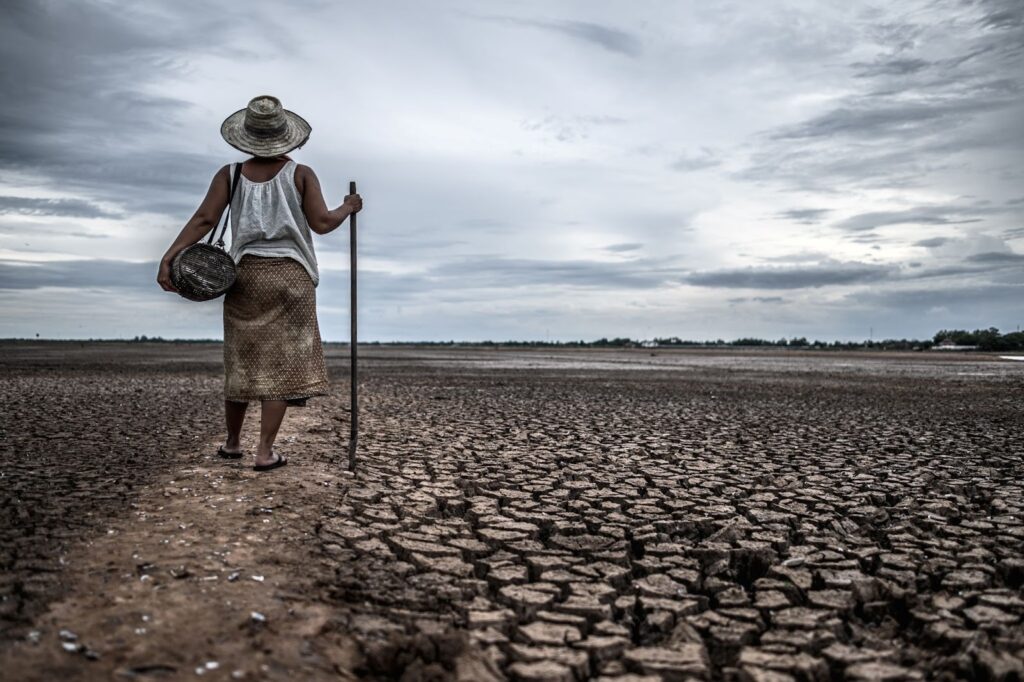El Niño Drought Grips Zimbabwe, Women Bear the Brunt
Jabulile Siwela

Zimbabwe is grappling with a severe El Niño-induced drought, prompting President Emmerson Mnangagwa to declare a state of national disaster. This extreme weather event threatens to push thousands of Zimbabweans to the brink of hunger, with a significant portion of the population projected to face food insecurity in the coming months. The drought raises particular concerns for women and girls, who are often disproportionately impacted by food shortages. Due to their traditional roles in households and communities, they bear the brunt of the burden when droughts occur. Women are responsible for securing water for families and maintaining hygiene, tasks that become much more difficult during droughts. Furthermore, they are often responsible for caring for children and the elderly, whose needs become even more critical during food shortages.
Climate change has presented more health risks as the drought that currently ravishes the nation has led to poor sanitation and hygiene conditions, this has in turn exacerbated the risk of waterborne diseases and malnutrition. Women are the custodians of family welfare in Zimbabwe, and the primary caregivers in households and communities, so they are at the forefront and receiving end in addressing health issues that emanate from drought.
The El-Nino induced drought that has overstayed within Southern African borders disrupting the entire economic landscape, bringing key economic activities to a sudden halt. Zimbabwe has not been spared and in a patriarchal set up women continue to be largely economically marginalized, even in a crumbling economic environment as a result of devastating effects of drought. Drought has caused mayhem in agricultural activities, disrupting livelihoods depending on farming; this has resulted in women severely affected due to their involvement in farming and small-scale businesses as a means of survival and catering for the needs of their families. Loss of income and assets can have long-term repercussions for women and their families.
Drought leads to water scarcity, many major cities in Zimbabwe are battling severe water crisis with the second largest and former industrial hub being one of the most affected. This in turn has a negative impact on women in terms of sanitation and hygiene. Women are forced to travel long distances to find water for their families. This has resulted in women being overburdened and their well-being largely affected. In December, reports surfaced of women being sexually assaulted in Bulawayo’s western areas coming from fetching water.
To effectively address the devastating effects of climate change on women, efforts must prioritize supporting their unique needs. This includes ensuring access to clean water for sanitation, healthcare, and education. Furthermore, empowering women with economic opportunities is crucial. By supporting these areas, we can build resilience and create a more equitable path forward in the face of climate challenges.
Government is crafting ways to mitigate and address the scourge but without empowering women to participate in key decision-making processes the efforts may prove to be futile and without any substance. Empowering women to participate in decision-making processes and providing resources to build their resilience to drought can help mitigate the devastating effects of climate change induced drought on their well-being and that of their families.
